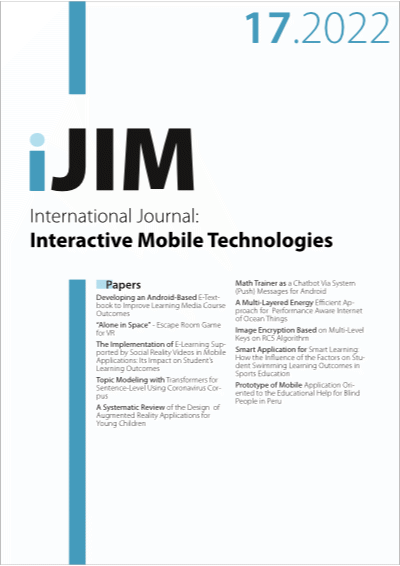The Implementation of E-Learning Supported by Social Reality Videos in Mobile Applications: Its Impact on Student’s Learning Outcomes
DOI:
https://doi.org/10.3991/ijim.v16i17.33041Keywords:
e-learning, social reality video, mobile application, learning outcomesAbstract
This study aims to implement e-learning supported by social reality videos in a mobile application and explore its impact on improving student learning outcomes. This study used an experimental design (pretest-posttest control group design), two sample groups were used, they were the experimental and control groups. The experimental group was treated with e-learning supported by social reality videos in a mobile application, while the control group was given face-to-face learning and relied on the expository method. The number of research samples in each of the two groups was 28 students, they were students who took basic natural science courses at the Mandalika Education University. Pre-test and post-test were given with the same task in both groups. This study focuses on measuring student cognitive learning outcomes which are considered as the impact of induced learning in both treatment groups. Each learning outcome data was analyzed descriptively (analysis of average learning outcomes and n-gain), and statistical analysis (testing the hypothesis of differences in student learning outcomes between treatment groups), statistical analysis at a significance level of 0.05. In general, the results of the study shows that e-learning supported by social reality videos in a mobile application has a significant impact on improving student learning outcomes, and is found to be better than the expository method. We recommend its simultaneous use in regular lectures in the classroom.
Downloads
Published
How to Cite
Issue
Section
License
Copyright (c) 2022 Ismail

This work is licensed under a Creative Commons Attribution 4.0 International License.



